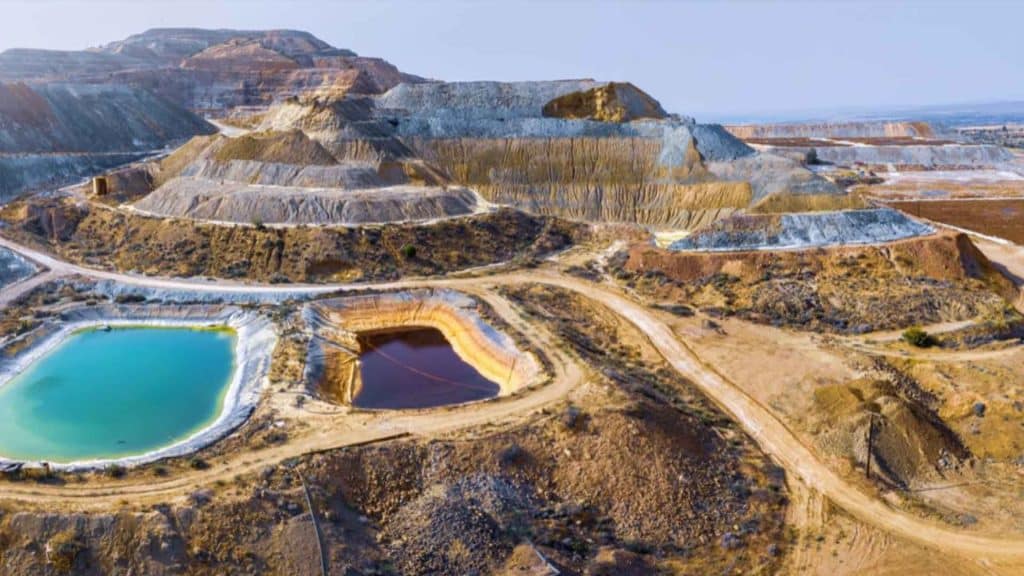Water is used throughout the mining lifecycle, and forms a key component of the operation; mining companies are responsible for more than 10 per cent of the world’s total freshwater consumption, according to the International Council on Mining and Metals (ICMM). Three-quarters of this water is used for processing ore and producing metal, while the remaining quarter is used for power generation and other applications. The ICMM noted that mining operations are typically located in remote areas where water is already scarce. Recycled water provides a potential alternative solution, but high standards and requirements that water be fit-for-purpose can provide obstacles to this solution.
ICMM highlighted digital solutions as an important tool in improving water management standards at mining sites and reducing water use across the industry. The organisation said digital solutions could help predict where water is available, monitor its quality, help manage its use and optimise the use of recycled water
Addressing Water Scarcity
The mining industry is looking to find ways to address water scarcity, with software solutions playing a key role in managing and maintaining the asset portfolio.
The mining industry faces a variety of challenges as it strives to remain competitive in the global market. Mining operations have traditionally relied on large-scale, capital-intensive solutions for their operations. This approach has involved significant investment in equipment and infrastructure—including power plants, transportation networks and mines—with many companies operating with high levels of debt.
With regard to water scarcity, the industry is looking at ways to address its impact on production (particularly during droughts). Digital technology plays an important role in helping mining companies manage their asset portfolio efficiently: digital technology enables greater visibility into water use across a mine’s operations; improves efficiency by automating processes; and allows for better compliance with government regulations regarding water use.
Freshwater Consumption
Mining companies are responsible for more than 10 per cent of the world’s total freshwater consumption, according to the International Council on Mining and Metals (ICMM).
In addition to consuming significant volumes of water, mining activities require large quantities of land and other natural resources. When resource extraction occurs in areas that are already water-stressed or experiencing climate change-related droughts (such as parts of Africa), this can have devastating environmental impacts on local communities as well as exacerbate existing issues around poverty, food security and access to clean drinking water. Three-quarters of this water is used for processing ore and producing metal, while the remaining quarter is used for power generation and other applications.
Recycled Water
Recycled water is a potential solution but it must be fit for purpose. Recycled water can be used in the processing circuit, maintenance of equipment and buildings as well as irrigation of mine sites. Maximising recycled water recovery can achieve substantial reductions in make-up water use while maintaining operational efficiency.
Before recycled water can be used anywhere else on site or elsewhere in society it must first be tested for contaminants that could potentially harm human health if ingested by humans (or animals) and treated accordingly so as not pose any risk – this includes testing for heavy metals like lead and uranium which are naturally present within rocks underground but become concentrated when processed during mining operations.
This situation has pushed companies towards finding innovative means that can help them manage this resource effectively while preserving their reputations as responsible corporate citizens.
Digital Solutions
ICMM highlighted digital solutions as an important tool in improving water management standards at mining sites and reducing water use across the industry. GDMS software can provide support in optimising water usage and reducing waste. Our software can support management of water use and can optimise the use of recycled water through predictive maintenance and improved leak detection capabilities that can minimise waste and contamination from faulty equipment, reducing costs associated with treating or disposing of contaminated water while also helping to protect the environment.
Our software can help mining operations manage their water usage more efficiently. It reduces water use, ensuring higher quality and improve management standards. Mining companies are now using digital technology to monitor, measure and analyse data relating to their entire value chain for the first time. This includes how much water is being used by each process within a mine site, as well as its quality levels in real-time. To learn more about how our software can benefit your operation, get in touch with one of our consultants.
